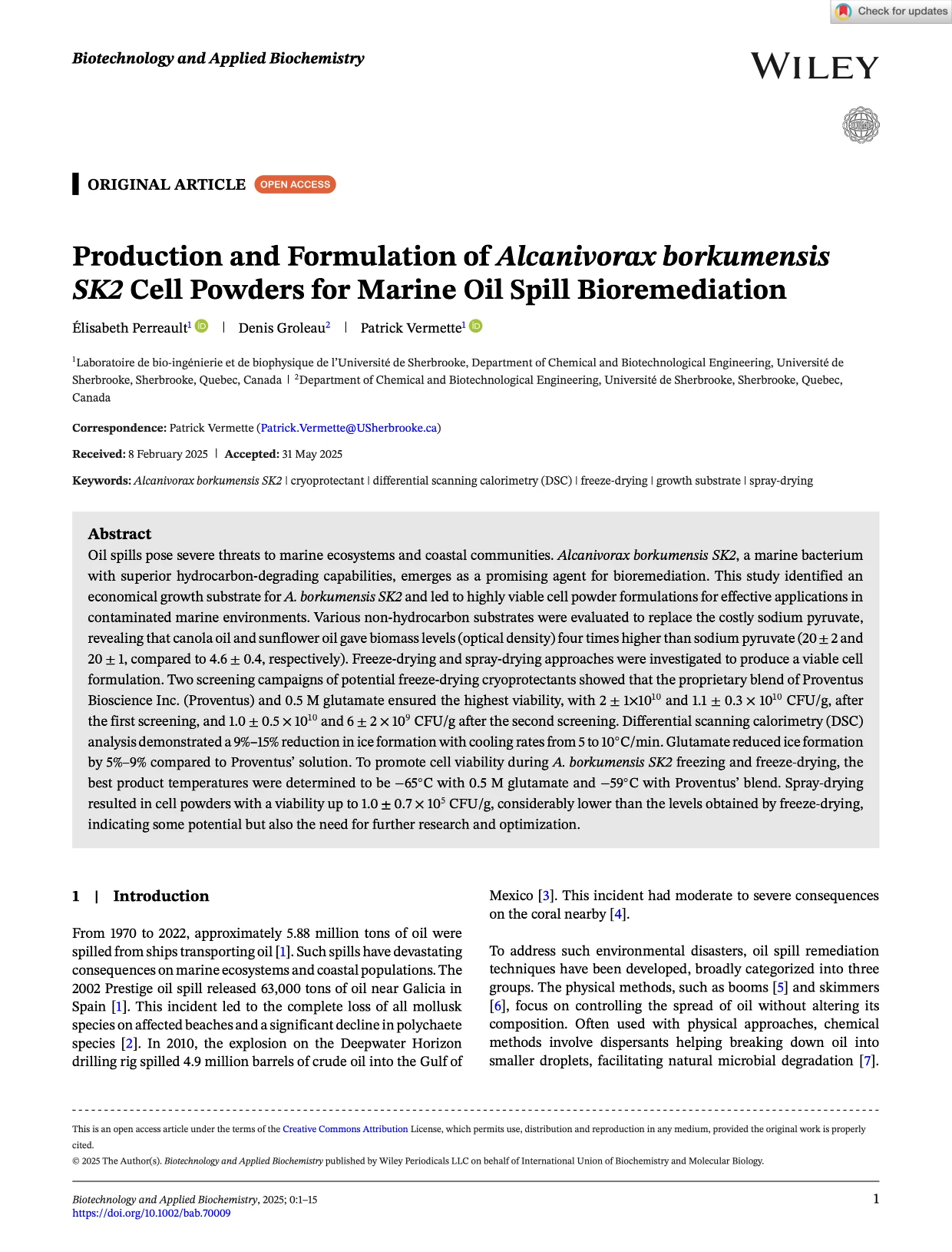As part of a collaboration between Université de Sherbrooke and Proventus Bioscience, a newly published study outlines an innovative process for formulating A. borkumensis SK2, a marine bacterium known for its hydrocarbon degrading capabilities, into a viable, stable powder format suitable for industrial deployment.
Objective: Develop a high-viability, cost-effective cell powder for use in marine oil spill bioremediation.
Key results:
- Canola and sunflower oils outperformed sodium pyruvate as growth substrates, yielding four times more biomass.
- Freeze-drying (vs. spray-drying), combined with either Proventus’ proprietary cryoprotectant or 0.5 M glutamate, achieved viability levels up to 2 × 10¹⁰ CFU/g.
- DSC analysis identified critical glass transition temperatures for process control: ‣ −65 °C with glutamate ‣ −59 °C with the Proventus blend.
This study is the first to report a complete powder formulation process for A. borkumensis SK2, comparing freeze-drying and spray-drying while defining key thermal parameters to preserve viability.
A special thank you to Élisabeth Perreault, Denis Groleau, and Patrick Vermette for their dedication, scientific excellence, and the quality of this collaboration.
It’s inspiring to see such impactful research emerge from university–industry partnerships.
